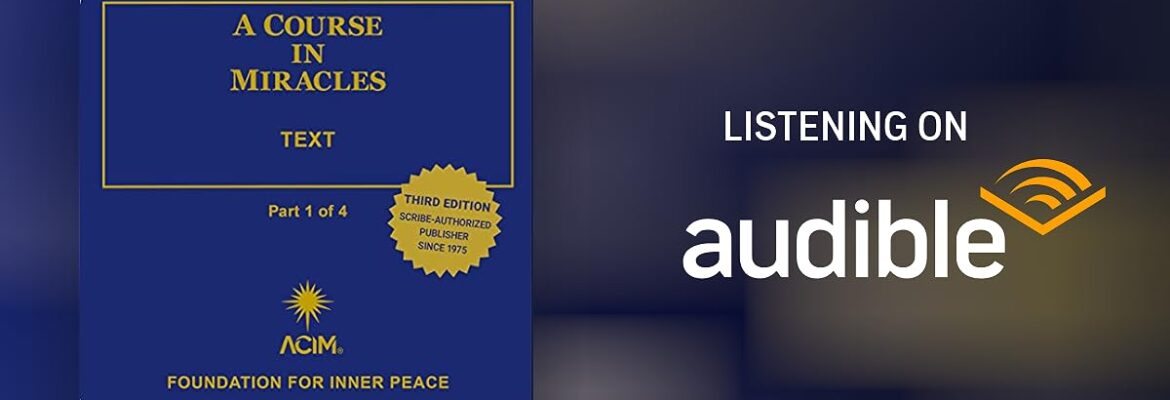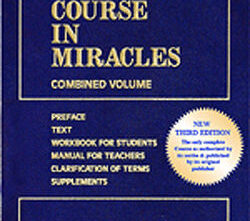Understanding A Course in Miracles (ACIM): A Path to Spiritual
A Course in Miracles (ACIM) is a profound spiritual text that has captivated and transformed the lives of many individuals seeking a deeper understanding of spirituality and a connection with their higher selves. Developed in the 1970s by Helen Schucman, a clinical psychologist, and William Thetford, a research psychologist, ACIM presents a unique and comprehensive approach to spiritual awakening. In this article, we will explore the key principles and teachings of A Course in Miracles.
Foundation of ACIM
At its core, ACIM is a self-study curriculum designed to lead individuals to a spiritual transformation and a shift in perception. The foundation of ACIM rests on the belief that the world we perceive is an illusion, a projection of our own thoughts and beliefs. According to ACIM, our minds are capable of creating a reality that is not in alignment with the truth of our spiritual nature.
The Three Central Themes
ACIM is organized into three main sections: the Text, the Workbook for Students, and the Manual for Teachers. Each section serves a unique purpose in guiding the reader through a process of undoing the ego-based thought system and embracing a perspective grounded in love and forgiveness.
- The Text: The Text provides the theoretical foundation of ACIM, outlining the metaphysical principles that underlie the Course. It explores concepts such as the nature of God, the ego, and the Holy Spirit. The Text challenges readers to question their beliefs about reality and consider an alternative way of perceiving the world.
- The Workbook for Students: This practical section consists of 365 lessons, each designed to be practiced daily. The lessons are aim at shifting the reader’s perception and undoing the ego’s hold on the mind. Through meditation and introspection, individuals are encourage to let go of fear, judgment, and grievances, and instead, choose love and forgiveness.
- The Manual for Teachers: The Manual offers guidance for those who choose to become spiritual teachers, emphasizing the importance of living the principles of ACIM and extending love and forgiveness to others. It addresses common challenges and questions that may arise during the spiritual journey.
Forgiveness and Miracles
Central to ACIM is the concept of forgiveness as a means of experiencing miracles. In the Course, forgiveness is not about condoning or excusing someone’s actions; rather. It is a recognition that the perceive wrongdoing is a projection of the ego’s distort perception. Through forgiveness, individuals can release the grip of the ego and open themselves to the experience of miracles. A shift in perception that allows love to flow freely.
Practical Application of ACIM
The teachings of ACIM are not merely theoretical; they are mean to be apply in everyday life. Practitioners of ACIM often report experiencing a profound sense of inner peace. Increased compassion for others, and a deeper connection to a higher source. The Course teaches that by consistently choosing forgiveness and love. Individuals can transcend the limitations of the ego and experience a lasting sense of joy and fulfillment.
Conclusion
A Course in Miracles offers a transformative journey. Those seeking a profound shift in perception and a connection with their spiritual essence. By challenging ingrained beliefs and offering a practical guide for forgiveness and love, ACIM provides a roadmap to spiritual awakening. As individuals engage with the teachings of ACIM. They may find themselves on a path toward a more meaningful and fulfilling life.



